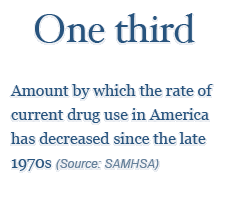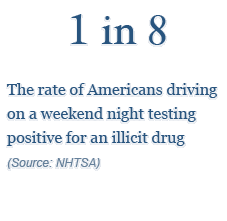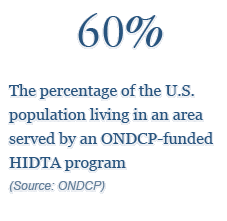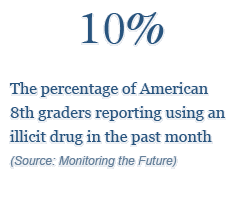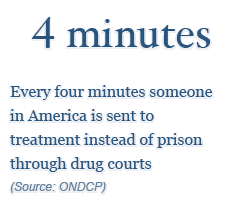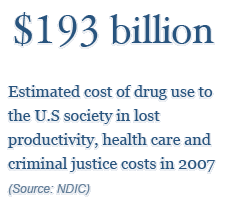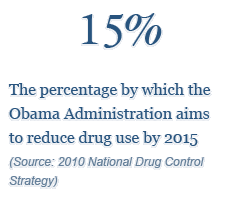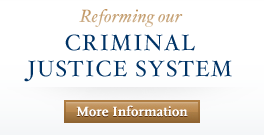A unique view of 2012
ONDCP Blog 
- February 13, 2013 at 12:46 PM EST
Guest Post: Helping Youth and Turning Lives Around through Education
Al Brandel is ONDCP's featured Advocate for Action Working to foster international drug-prevention partnerships.
- February 12, 2013 at 1:41 PM EST
Are Drugs Today Really Cheaper, Purer, and More Available Than Ever?
You’ve probably heard this claim: Despite decades of effort, we’ve failed to make any significant progress in reducing drug use in this country. Some critics go so far as to say that “illegal drugs are cheaper, purer, and more available today” than ever before. This is a compelling argument and a powerful sound bite, to be sure. There’s just one problem: It’s not true.
- February 11, 2013 at 4:01 PM EST
Watch Dr. Nora Volkow Explain How Neuroscience Shapes Drug Policy
Video: The Director of the National Institute on Drug Abuse describes the scientific foundation for the President's National Drug Control Policy.
- February 5, 2013 at 3:39 PM EST
Drug Laws: Why Do We Have them, and Do They Work?
It’s a question often raised in today’s heated discussion about the efficacy of drug policy in America: Do regulations outlawing certain drugs actually work?
- January 31, 2013 at 12:50 PM EST
Guest Post: Michael Banyard’s Story, Part 1.
In June 2012, ONDCP Director Kerlikowske gave remarks at the Betty Ford Center. In the audience were two special guests—Michael Banyard and Federal District Court Judge Spencer Letts. In his remarks, Director Kerlikowske mentioned Banyard’s inspirational story, which Banyard has now shared--in his own words-- with the ONDCP blog. Part 1.
- January 30, 2013 at 2:28 PM EST
Transportation Safety Leader Prioritizes Drugged Driving Prevention
The National Transportation Safety Board (NTSB) announced that substance impaired driving is an advocacy priority for 2013.
- January 30, 2013 at 10:30 AM EST
Does Drug Treatment Work?
Does drug treatment work? Can substance use disorders be successfully treated? Read what the National Institute on Drug Abuse has to say on treatment, addiction, and relapse.
- January 25, 2013 at 9:43 AM EST
Hundreds Gathered in Washington, D.C., for 2012 HIDTA Conference
More than 500 leaders from the law enforcement, prevention, and treatment communities gathered in Washington, D.C., last month for the 2012 National High Intensity Drug Trafficking Areas (HIDTA) Conference.
National Drug Control Strategy
Drug use affects every sector of society, straining our economy, our healthcare and criminal justice systems, and endangering the futures of young people. While many challenges remain, overall drug use in the United States has dropped substantially over the past thirty years.
To build on this progress and support a public health approach to drug control outlined in the Strategy , the Obama Administration has committed over $10 billion drug education programs and support for expanding access to drug treatment for addicts. Learn about the Obama Administration’s balanced public health and safety approach to reducing drug use and its consequences in America. Read more
Topics
Prescription Drug Abuse
Prescription drug abuse is the Nation's fastest-growing drug problem and has been classified as an epidemic by the Centers for Disease Control and Prevention. Learn more about this public health threat and comprehensive, government-wide actions being taken by the Administration to reduce prescription drug abuse. Read more
Drugged Driving
Americans are all-too familiar with the terrible consequences of drunk and distracted driving. An emerging body of research shows that drugged driving is also a serious threat to public safety. Learn more about this issue and what the Administration is doing to encourage safe driving. Read more
Prevention
Preventing drug use before it begins is a cost-effective, common-sense approach to promoting safe and healthy communities. The Administration is working with Federal, state, local, and tribal partners, as well as community grantees, to educate teens on healthy choices and to prevent drug use before it starts. Read more
Special Populations
While drug addiction respects no geographic, ethnic, economic, or social boundaries, there are some specific populations that deserve focused efforts, including







